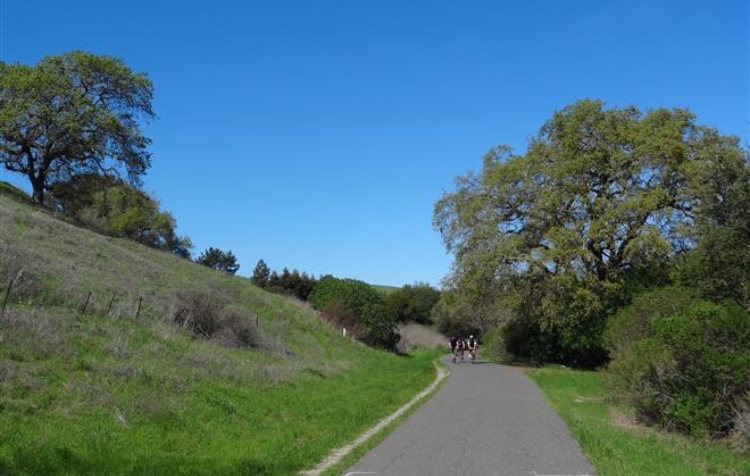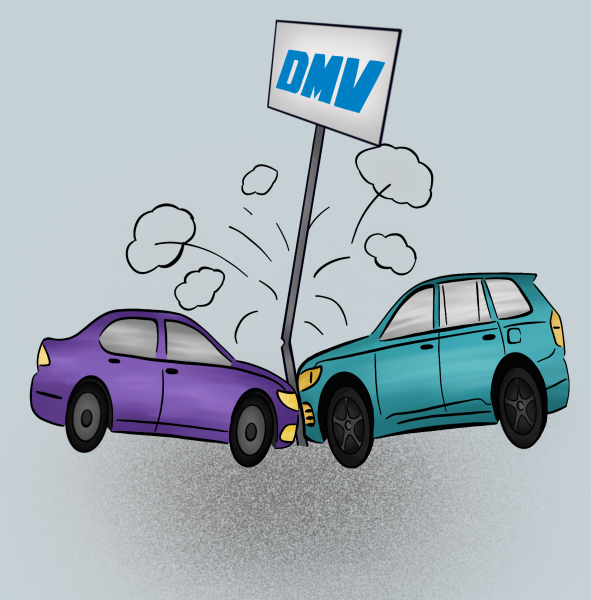Alternatives to Tree Removal Need Consideration
May 30, 2017
The city of Lafayette’s agreement for PG&E to remove 272 trees along their downtown gas pipeline, including 216 protected trees along public trails, has been met with community uproar. PG&E’s initial proposal included removing upwards of 1,000 trees. While the newest plan greatly reduces the number of trees that will be cut down, it is still an unnecessary course of action to take in protecting public safety.
PG&E’s mass removal of trees first started as part of their Community Pipeline Safety Initiative, which focuses on the statewide removal of trees, brush, and structures that the company deems to be blocking pipelines that may inhibit first responders from reaching gas transmission lines in the event of a natural disaster, according to The East Bay Times.
Lafayette is the company’s last stop as a part of this initiative, which would finish their project of removing trees along 6,750 miles throughout California.
The claims that PG&E has made in regards to civilian safety are unverified, as are their claims that such tree roots have the potential to destroy pipelines. The company has yet to produce sufficient information to back up such claims and has not released official data or documentation that further validates them.
What prompted PG&E to begin their pipeline safety initiative, in fact, had nothing to do with tree roots, but a 2010 pipeline explosion in San Bruno. The explosion occurred under asphalt due to poor welding and a buildup of pressure, causing an accident that killed 8 people. The company was sued, and then it began this project– which attempts to solve a nonexistent problem that is entirely unrelated to the initial accident.
In fact, in the company’s over 100 year history, not a single pipeline incident has been caused by obstruction from a tree or its roots.
A more viable course of action would be to focus on fixing faulty pipes if need be, rather than on the danger that the company claims trees pose to gas pipelines, of which there is none. Company spokesman Jeff Smith claims this is “not a feasible alternative”, despite community pleas that this poses significantly less environmental risk.
Residents have proposed such a solution that does not impact the environment so drastically, as seen on a change.org petition started by Lafayette resident Michael Dawson. The petition needs to get 2,500 signatures to be delivered to the City of Lafayette, so far having attained 2,000 signatures.
The petition has 4 requests. 1st, to release a map of the locations, sizes, and distance of such trees from the pipeline. 2nd, to place visible signs identifying trees scheduled to be removed 60 days prior to removal. 3rd, to let homeowners know if such trees are on their private property, and that they cannot be legally forced to remove such trees. 4th, to come up with a plan in conjunction with EBMUD and PG&E to protect the gas pipeline in sensitive areas or to move it further down the trail, which will eliminate the company’s need for massive tree removal.
After receiving 1,500 signatures, it appears the campaign has compelled PG&E to release a map of the trees targeted for removal. If PG&E complies with the remaining requests, it ensures the company will exhaust all other alternatives before drastically altering Lafayette’s environment.
PG&E has delayed the removal of trees to late summer, rather than in June, but still has not confirmed whether or not the number of trees to be removed will be significantly reduced.
Not only endangering Lafayette’s rural charm the project will destroy the habitat of countless birds and animals. Nearly 56% of these trees are established, large oaks that are a fixture on our trails. PG&E offers shortcuts that bypass real safety concerns, and such careless removal creates irreparable damage to our community if we do not speak up for what will best preserve it.
We will only be able to see the full impact of such a tree removal once these trees are permanently destroyed. This is not a risk that we should be willing to take.





Gina Dawson • May 12, 2018 at 10:47 pm
This is an excellent recap of the situation that was unfolding a year ago. Residents in Lafayette are still challenging PG&E’s claims and in fact, have reasons to believe pipeline may be made less safe with removal of the trees. We would welcome an opportunity to speak with a La Puma staff member and relay the latest information. Student voices could really make a difference in saving trees and pipeline integrity.
Gina Dawson